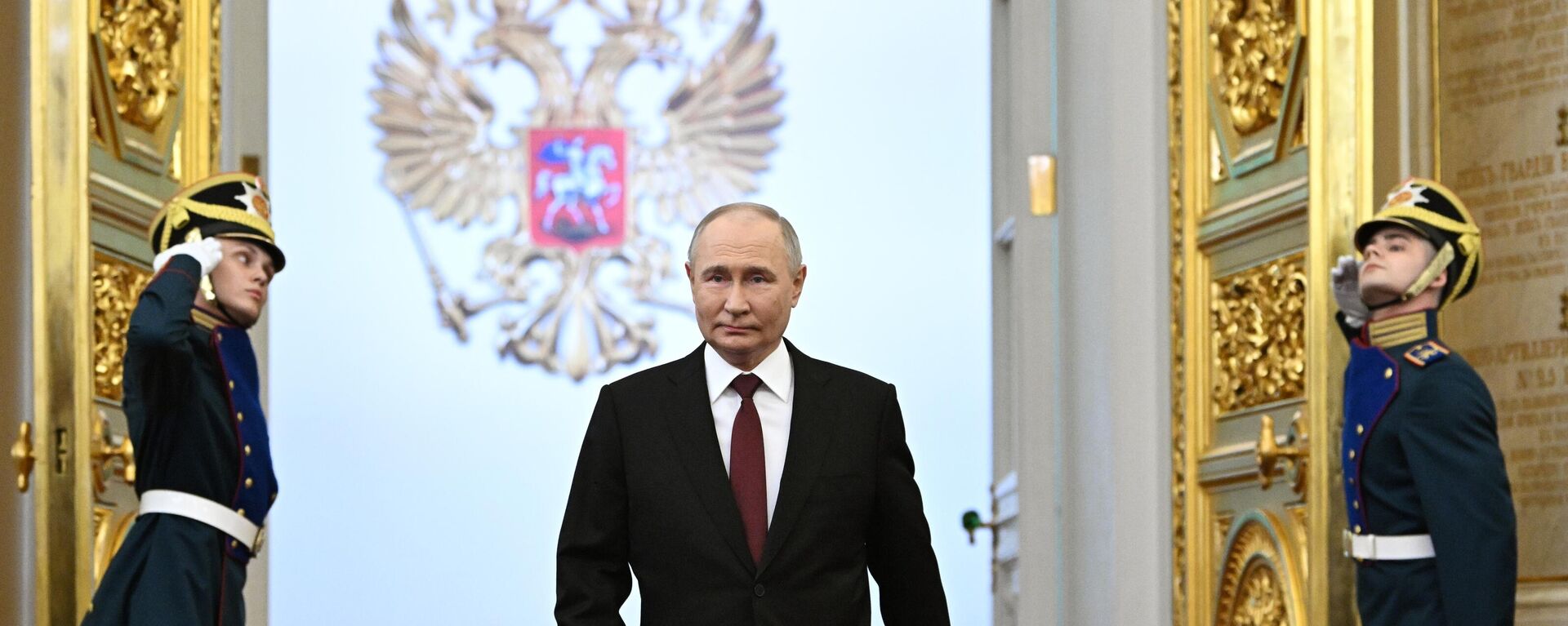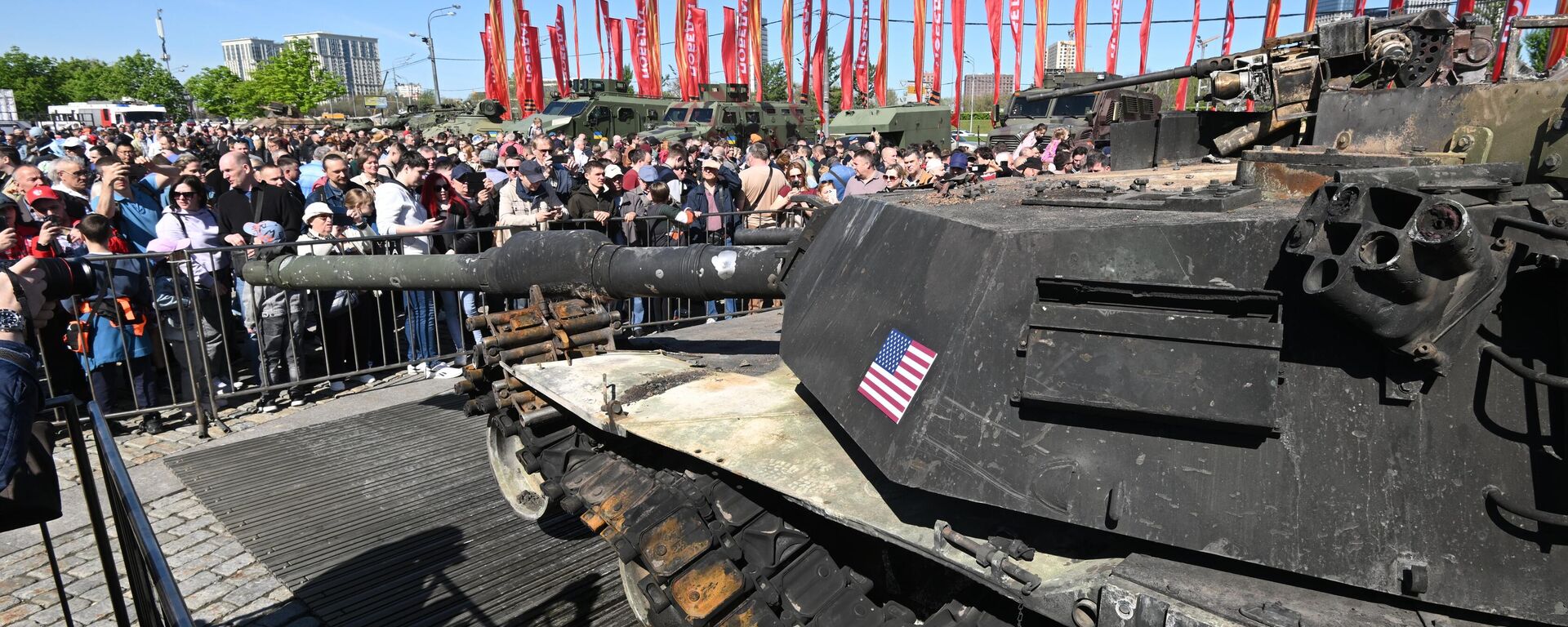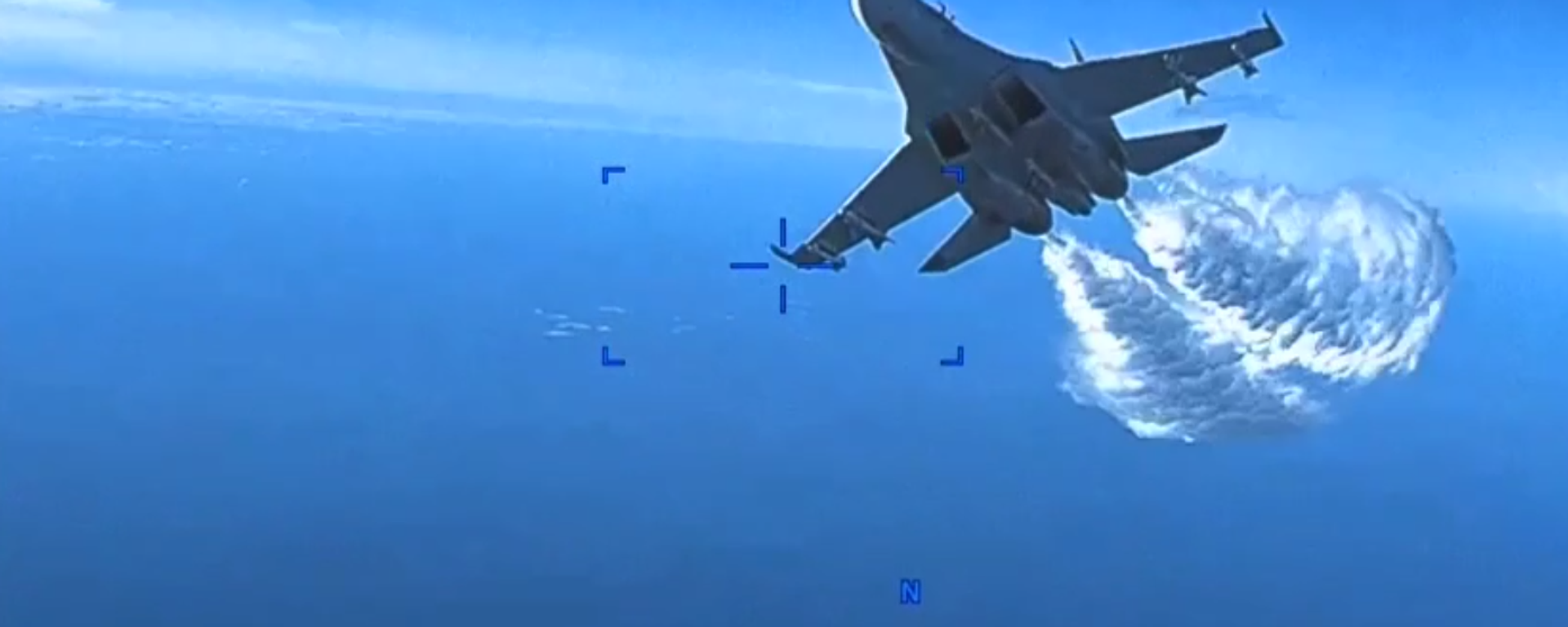The Russian president’s leadership has paved the way for a multipolar world as the country is able to withstand Western aggression on multiple fronts.

Vladimir Putin was inaugurated for another term as Russia’s president Tuesday in a ceremony following an unprecedented victory in March’s election. Putin prevailed with 87% of the vote, an unmatched performance in Russia’s modern post-Soviet history, with voter turnout reaching over 77%.
Western countries have expressed dissatisfaction with the development with only seven of the European Union’s 27 member states reportedly sending representatives to Tuesday’s ceremony.
But domestic support for the longtime Russian leader is strong claimed international relations expert Mark Sleboda, who appeared on Sputnik’s The Critical Hour program Tuesday to discuss sentiment on the ground from Moscow.
“Whatever the propaganda rags in the West may try to present, there was a higher voter turnout and Putin achieved a higher result in this election than he had in any previous elections,” said the security analyst. “I don’t care whether you’re talking Russian polling or opposition polling paid for by the US government – like Levada – or outside polling, they all show the same results. So any accusations that the elections were anything less than they appear to be are just sour grapes.”
Sleboda noted that among the European countries sending ambassadors to the inauguration were Hungary, Slovakia, and France.
Hungary and France are among the stops on Chinese President Xi Jinping’s itinerary as he visits Europe this week, suggesting the two countries are making some effort to signal a foreign policy independent from that of the US-led western consensus.
The United States has attempted to convince China not to conduct trade with Russia amid the latter’s military operation in the Donbass, with Xi resisting US attempts to turn the conflict into a dispute between China and the United States.
“I think they show Putin at the height of his power and popularity,” said Sleboda of the results of Russia’s recent election. “And also I think it shows a broad support of the course and vision that he has charted for the country, but also, more poignantly right now, it has been viewed – and correctly so – as a referendum on the special military operation on the Russian intervention in the Ukrainian civil conflict.”
“If the results of the election weren’t enough to do that, the fact that the Russian Ministry of Defense is signing up over a thousand Russian men and women a day volunteering to serve in Ukraine, in the special military operation, as contract soldiers clearly makes the support [clear] that Russians in general have for that,” he added.
Host Wilmer Leon noted one line in particular from Putin’s inaugural speech where the Russian president insisted, “we will determine the fate of Russia by ourselves and only ourselves for the sake of today’s and future generations.”
“Garland [Nixon] and I say all the time when you listen to President Xi, when you listen to Putin, when you listen to [Ebrahim] Raisi, you really have to pay attention to what they say because they say what they mean and they mean what they say,” said Leon.
“When you read that statement and you look at the actions that he’s taking – whether it’s the Russian economy, whether it’s the military intervention, whether it’s the relationship he’s developed with China – he’s doing what he says he’s going to do. And the turnout and the percentage of win obviously speaks volumes that the Russian people are pleased not only with their president, but with their government.”
Russia’s close diplomatic ties with China have proven crucial as the country weathers sanctions imposed by the West. The use of Chinese systems such as UnionPay has provided a fallback for the country as the United States bans Russia from participating in SWIFT and other Western-controlled frameworks.
The two countries also dealt a blow to the United States’ ability to leverage dollar hegemony against its adversaries by agreeing to settle energy deals in each other’s national currencies in 2022.
Such moves have paved the way for a global financial system free from Western domination, but they’ve also paid concrete economic dividends for Russia. Recent data suggests Russia could reach over 3% GDP growth in 2024, placing it well ahead of its European competitors.
The advancement has been driven by strong performance in the manufacturing sector, which currently faces decline in countries like Germany that have sanctioned Russian energy.
Putin’s victory signals strong domestic support for Moscow’s special military operation to defend the Donbass republics, which is viewed as an existential battle against foreign aggression. Russia’s dominance is driven by its technological supremacy on the battlefield, with the country’s troops able to easily defeat even advanced NATO weaponry.
The dynamic is demonstrated by a recent controversy over the provision of Reaper drones to Ukraine. Reports in Western media suggest Kiev is requesting more of the unmanned vehicles from its US and European allies. But the Russian Armed Forces have been able to easily destroy the top-of-the-line drones, Sleboda notes.
“As to this story about Ukraine asking for Reaper drones – this is a joke because Russia has demonstrated that it has such superior air defense and electronic warfare,” said the expert. “The British Royal United Services Institute, the unofficial think tank, admitted that Russian electronic warfare takes down 90% of the Western-supplied drones that have been given to the Kiev regime. They called it a drone massacre.”
“You may have noticed that even the Houthis, or Ansar Allah, have taken down three Reaper drones that the US sent in their attempt to stop the Houthis from attacking shipping connected with Israel through the Red Sea,” he recalled. “These drones cost $30 million apiece, and the US has lost at least four of them in the last year… They’re not going to feed more of them to Ukraine. They don’t have that many of them to waste like that.”
“They would be mowed out of the sky. The US knows it. Ukraine can request it all they want, but whether for reconnaissance or combat purposes, the US is not going to supply the Reapers to Ukraine because they know how ineffective they will be, and how quickly they’ll be taken down, and they cost too much. And the US doesn’t have that many of them that they can throw away like that.”
Don’t Fear the Reaper: How Can Heavy Drones Be Detected, Identified and Brought Down?
By John Miles
Published by Sputnik Globe
Republished by The 21st Century
The views expressed in this article are solely those of the author and do not necessarily reflect the opinions of 21cir.com



